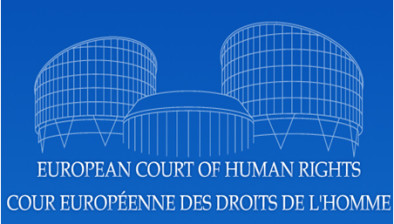Eoin Jackson: Climate rulings at the European Court of Human Rights merit Irish lawyers’ attention

Eoin Jackson
Eoin Jackson looks ahead to upcoming rulings on climate litigation before the European Court of Human Rights.
The European Court of Human Rights has recently announced that it will deliver its rulings in three major climate cases — Verein KlimaSeniorinnen Schweiz and Others v. Switzerland, Carême v. France and Duarte Agostinho and Others v. Portugal and 32 Others — on 9 April.
This will represent the first rulings of the court on the nature and extent of the link between states’ responsibility to address climate change and states’ obligations under the European Convention on Human Rights.
The cases
Two of the climate cases, Duarte Agostinho and KlimaSeniorinnen, saw members of a vulnerable community challenge the state’s inadequate or insufficiently ambitious efforts to mitigate climate change.
In Duarte Agostinho, a group of Portuguese youth affected by wildfires exacerbated by climate change took multiple states to court, arguing that the states have fallen short of their human rights obligations by failing to agree to emissions reductions that will keep the global temperature rise within the guardrail of 1.5°C laid out in the Paris Agreement.
In KlimaSeniorinnen, a group of elderly Swiss women whose health is at risk from rising heat waves challenged the Swiss government’s inadequate climate policies.
The third climate case, Careme v France, concerns a former mayor of the French city of Grande-Synthe, who argued that the failure of the French authorities to take all appropriate measures to enable France to comply with the maximum levels of greenhouse gas emissions that the government has set for itself constitutes a violation of human rights.
The applicants are primarily relying on the obligation of states to guarantee the right to life, enshrined in Article 2 of the European Convention, and to guarantee the right to respect for private and family life, under Article 8 of the European Convention.
The applicants in Duarte Agostinho are also relying on Article 14 of the European Convention, arguing that the disproportionate impact of climate change on future generations, and the failure of governments to mitigate these impacts, is a violation of the right not to experience discrimination.
Considerations for the court
A key question for the court is the extent to which there are substantive human rights obligations on states to mitigate and/or adapt to climate change. Environmental rights have often been limited in the past to procedural rights, e.g. access to environmental information, a right to public consultation, and the duty to conduct an environmental impact assessment before the implementation of key projects. While valuable, these rights are not enough in and of themselves to impose substantive obligations on states to respond to the existential threat posed by climate change.
Were the court to confirm that inadequate climate policies and/or policies that do not align with the best available climate science constitute a violation of the European Convention on Human Rights, then states may be obliged under European human rights law to significantly increase their climate ambitions.
Equally, if obligations are made substantive — i.e. there is movement beyond just procedural rights — it increases the likelihood of further climate litigation and broader efforts at climate accountability within domestic jurisdictions. These cases could therefore lay the groundwork for activists to challenge more specific aspects of government policy to ensure states align fully with the measures necessary to stay within the 1.5 °C temperature guardrail.
Ireland’s role in the proceedings
Ireland submitted one of the most climate-averse arguments to the court. The government argued that climate policy-making should remain strictly within the realm of national policy-makers and judiciaries and the European Court of Human Rights would overstep by creating more substantive obligations. Further, it argued that claims that the risks of climate change are “negligible in comparison to the environmental hazards of a modern city”, which has been deemed by some climate lawyers as “bordering on climate denial”.
This reluctance to strengthen climate obligations may be linked to the fact that Ireland is dramatically behind on its climate commitments and would likely be in violation of any substantive rights developed by the court in its ruling. Should the court find for the states, or interpret rights obligations in so narrow a manner as to render them ineffective for further climate action, the Irish government will bear a significant portion of responsibility for such a setback.
On the other hand, should the court determine that the European Convention mandates states to increase their climate ambitions and/or that the insufficiently ambitious climate policies of the states constitute a violation of human rights, the government may find itself facing further challenges to its already inadequate climate policies. With the government already in court due to its lack of progress on climate commitments, this could prove to be another legal headache for politicians.
Irish lawyers and climate activists should therefore pay close attention to the court rulings, and assess how it may help or hinder efforts to address the climate emergency. Regardless of the overall outcome, these rulings will represent a pivotal moment for climate litigation.
Eoin Jackson is the Irish rapporteur for the Sabin Center for Climate Change Law at Columbia Law School, New York.








